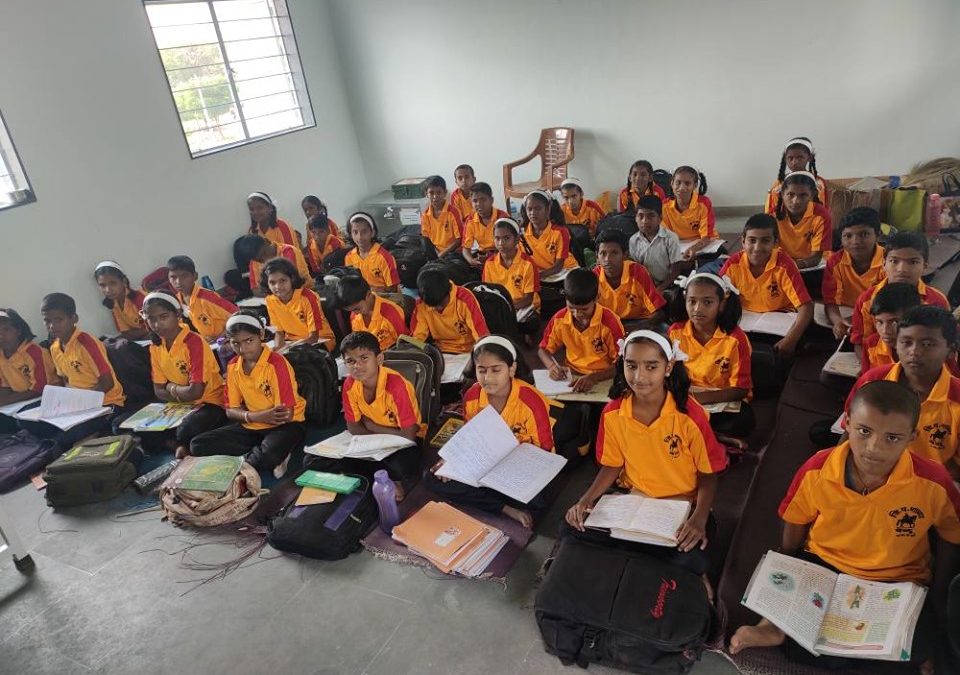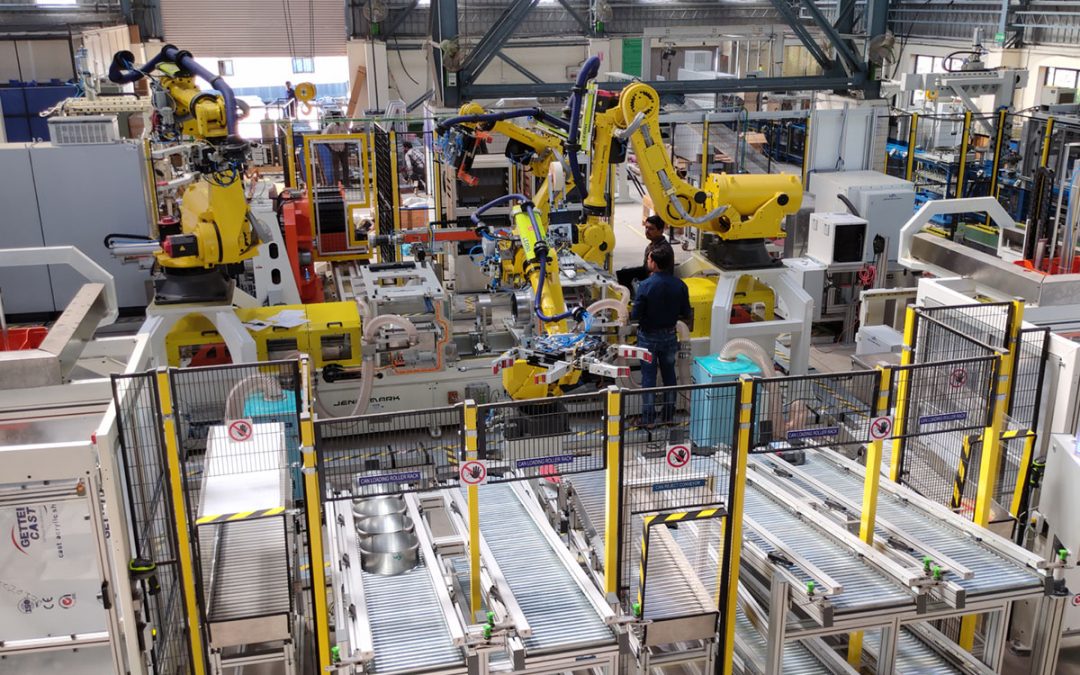
by NewsAdmin | Dec 4, 2019 | Jendamark Junction, Jendamark News
Determined to create a more conducive environment for learning, Jendamark India recently partnered with the new Zilla Parishade (District Council) School in Velu to fund the building of a classroom.
This newly built, government-run school serves 300 pupils, whose families hail from a mainly rural, agricultural community.
Jendamark India’s Pranjali Valavade says before its establishment, there were no district schools in the area.
“Education is essential for development and we really wanted to give something back to the community in which we are operating our business,” says Valavade, adding that one of these children could be the next tech leader.
“It is very important to have clean and spacious infrastructure for learning. We are so proud that we were able to give some small help in building a bright future for these children.”

by NewsAdmin | Dec 4, 2019 | Jendamark Junction
With the BS-VI (Euro 6) emission standards deadline of April 2020 looming, Jendamark India has been hard at work, rolling out its first adaptive canning lines for customers.
SHARDA MOTOR INDUSTRIES
Sharda Motors was the first customer, ordering two identical canning lines for its facilities in Pune and Nashik, to cater to the varying needs of vehicle manufacturers Tata, Mahindra and Force Motors.
To accommodate each of Sharda’s end customers’ different requirements, 140 quick-changeover toolings were included in the design of the line.
After receiving the order in July 2018, Jendamark India set about the massively challenging task of designing, manufacturing and executing the country’s first adaptive canning line.
Counterpart Jendamark South Africa has been providing canning lines for over 10 years to several companies across the globe.
As Jendamark India’s key account manager Sayali Mahajan explains:
“This vast experience has allowed Jendamark India to use this expertise and to fine tune the machines to develop unique Indian solutions.”
With support from South Africa throughout this year-long project, Jendamark India developed standard machines and the two lines according to the customer’s specifications.
“In the end, we were proud to deliver a product that achieves the output volume, quality and cycle time requirements,” says Mahajan.
“Because adaptive canning is a relatively new concept, Jendamark also supported Sharda Motors in giving the customer a detailed understanding of adaptive canning in addition to product design recommendations.”
In-depth training on operating the line, preventative maintenance and quality product building was also provided in the initial phase, with future plans to integrate Jendamark’s own Industry 4.0-powered Odin tool management system into the line.
FAURECIA
In another first for the company, Jendamark India was asked to deliver its first fully automated adaptive canning line for Faurecia.
The most challenging aspect of this project was that two lines were ordered – one of which was built in India and the other in South Africa.
“But the customer’s condition was that they had to be absolutely identical,” says Jendamark India’s CEO Himanshu Jadhav.
Naturally, Jendamark’s two manufacturing facilities strove to reach the high bar that was set – and achieved success.
Jadhav says key to this success was sending members of Jendamark India’s design, assembly, controls and production management teams to South Africa, which was where Line 1 was built.
“The team gained hands-on experience and were able to transfer skills and knowledge on their return to India for building Line 2. Now we have developed our own resource pool of experts, who can successfully execute future projects.”
This project took nine months to complete and both lines were installed in the Faurecia facility in Chakan, where they will build products for end customer Cummins.
“More than meeting Faurecia’s request, this project also proved that Jendamark can deliver to a consistent global standard – wherever the line is manufactured,” says Jadhav.
“It was a steep learning curve working with our South African colleagues, with great cultural and knowledge exchanges between our teams.”

